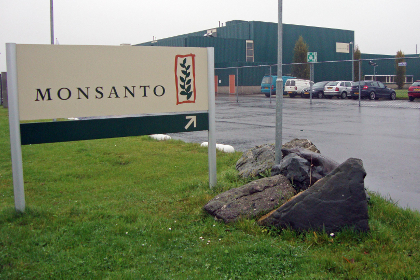
IARC Scientists Defend Glyphosate Cancer Link; Surprised by Industry Assault
Don’t mess with Monsanto Co. That is the message being delivered right now by the agrichemical industry as it makes a full-fledged assault on the team of international cancer scientists who dared to declare cancerous connections to the widely used herbicide called glyphosate, the chief ingredient in Monsanto’s Roundup brand.
October 31, 2016 | Source: Huffington Post | by Carey Gillam
Don’t mess with Monsanto Co. That is the message being delivered right now by the agrichemical industry as it makes a full-fledged assault on the team of international cancer scientists who dared to declare cancerous connections to the widely used herbicide called glyphosate, the chief ingredient in Monsanto’s Roundup brand.
Industry swagger is on full display in Washington where Monsanto and its friends at CropLife America are driving efforts to cut off U.S. funding for the World Health Organization’s International Agency for Research on Cancer (IARC) after IARC scientists declared glyphosate a probable human carcinogen in March 2015. The industry is also demanding that the Environmental Protection Agency fully repudiate the IARC classification and green-light continued use of glyphosate herbicides, which spell billions of dollars in sales annually to Monsanto and the agrichemical brethren.
The EPA has been evaluating glyphosate as part of a re-registration review process for more than five years, and was initially expected to complete that review last year. The EPA then said it would complete the review by the end of 2016, and now says it will be 2017 before it offers a final report. The work has been drawn out as the EPA wrestles with the IARC classification, which has both legal and economic implications for the agrichemical industry. The EPA had planned to hold four days of public meetings – over industry objections– to examine scientific research on glyphosate. But the industry, which deemed the meetings “unnecessary” and “inappropriate,” successfully derailed those Oct. 18-21 public meetings by challenging certain scientists appointed by EPA to an advisory panel. The EPA has “postponed” the meetings and has yet to reschedule.
